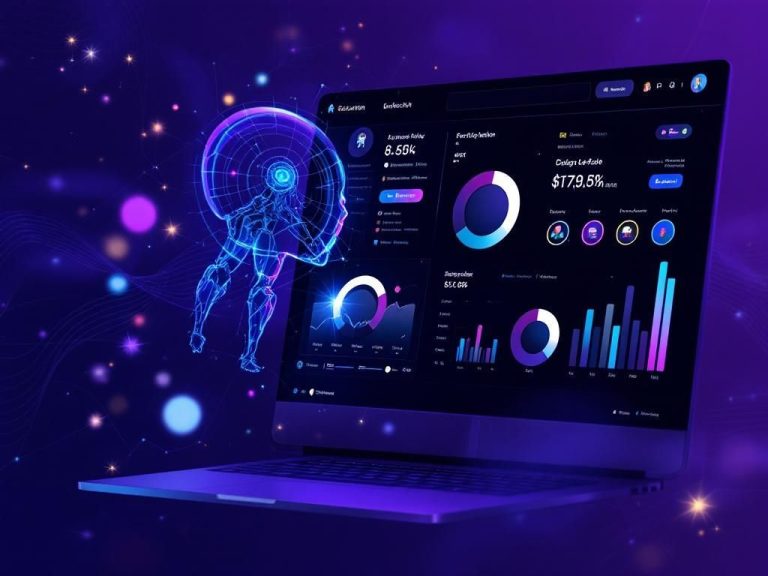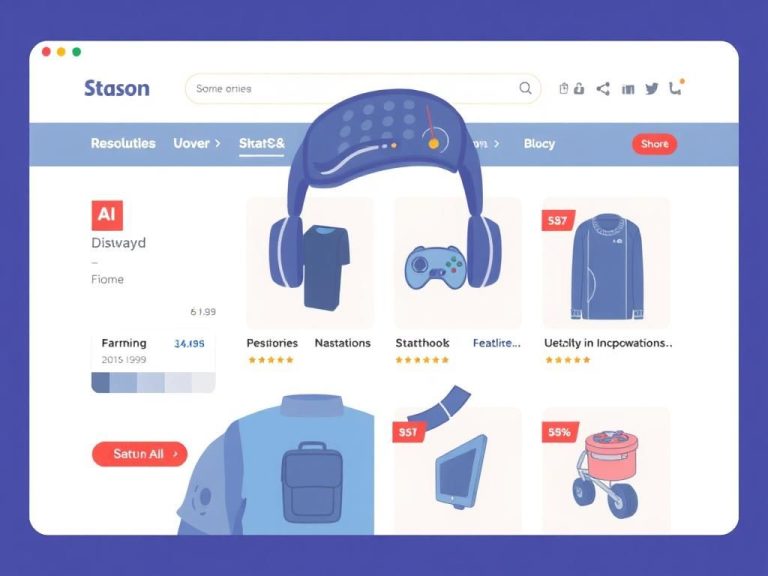In an age where online shopping is more than just a trend, the integration of artificial intelligence (AI) into eCommerce has redefined customer experiences. With advancements in technology and consumer expectations soaring, businesses are leveraging AI to offer personalized shopping experiences, thereby driving sales and fostering customer loyalty. In this article, we will explore how AI personalization is transforming eCommerce, the technologies behind it, various strategies, and the future outlook for 2025.
The Rise of AI in eCommerce
Artificial intelligence has made significant inroads into various sectors, and eCommerce is no exception. AI technologies enable businesses to analyze consumer behavior with unprecedented accuracy, leading to tailored shopping experiences. Here are some reasons for the rise of AI in the eCommerce sector:
- Data-Driven Decision Making: AI can process large volumes of data, enabling brands to make informed decisions based on customer preferences and shopping habits.
- Enhanced User Experience: By implementing AI, brands can create a seamless and engaging shopping experience that caters to individual customer needs.
- Cost Reduction: Automation of repetitive tasks leads to significant cost savings, allowing businesses to reallocate resources to innovative strategies.
Understanding AI Personalization
AI personalization refers to the use of algorithms and data analytics to tailor experiences, recommendations, and content for individual users based on their past behaviors, preferences, and interactions with the brand.
How AI Personalization Works
At the core of AI personalization are advanced algorithms that analyze user data. Below are some key components:
- Data Collection: Every interaction a user has on an eCommerce site generates data. This includes browsing history, searches, purchases, and even time spent on certain pages.
- Machine Learning: Machine learning algorithms analyze this data to identify patterns and predict future behavior. These systems can learn over time, constantly improving recommendations.
- Recommendation Engines: Based on the insights gathered, AI systems provide personalized recommendations to users, increasing the chances of conversion.
Strategies for Implementing AI Personalization
To maximize the benefits of AI personalization, businesses must adopt effective strategies. Here are some approaches that can lead to success:
1. Personalized Product Recommendations
Using AI to analyze customer data allows businesses to provide tailored product recommendations. This could be based on:
| Data Point | Recommendation Type |
|---|---|
| Past Purchases | Similar Products |
| Browsing History | Complementary Items |
| User Ratings | Trending Products |
2. Tailored Marketing Campaigns
AI can segment audiences based on behavior and demographics, enabling businesses to create segmented marketing campaigns that resonate with specific customer groups. This leads to:
- Increased email open rates.
- Higher conversion rates.
- Improved customer retention.
3. Dynamic Pricing Strategies
AI-driven dynamic pricing strategies allow businesses to adjust prices based on demand, competition, and user behavior. This ensures:
- Competitive pricing.
- Maximized sales opportunities.
- Enhanced customer satisfaction.
The Role of Chatbots and Virtual Assistants
Chatbots and virtual assistants powered by AI are gaining traction in eCommerce as they provide real-time customer support and enhance the shopping experience.
Benefits of Chatbots
- 24/7 Availability: Chatbots are available around the clock, ensuring customers receive support whenever they need it.
- Instant Responses: They can answer queries instantly, reducing the waiting time for customers.
- Personalized Interactions: Chatbots can use customer data to provide personalized assistance and product recommendations.
Challenges in AI Personalization
Despite the numerous benefits, implementing AI personalization is not without challenges:
1. Data Privacy Concerns
With increasing scrutiny on data privacy, businesses must ensure they are compliant with regulations like GDPR. This involves:
- Transparency about data collection.
- Obtaining explicit consent from users.
- Implementing robust security measures.
2. Integration with Existing Systems
Many businesses struggle with integrating AI technologies into their existing systems. This requires:
- Investing in compatible technology.
- Training staff to utilize new tools effectively.
- Ensuring seamless data flow across platforms.
3. Maintaining Personalization at Scale
As businesses grow, maintaining a personalized experience can become challenging. Strategies to overcome this include:
- Utilizing advanced algorithms to handle large datasets.
- Regularly updating personalization strategies based on analytics.
- Investing in continuous learning for AI systems.
The Future of AI Personalization in eCommerce
As we look towards 2025, the future of AI personalization in eCommerce appears promising. Expected developments include:
- Increased AI Adoption: More businesses will adopt AI technologies, making personalization a standard practice.
- Enhanced Customer Insights: Advances in AI will provide deeper insights into consumer behavior, enabling even more tailored experiences.
- Augmented Reality and Virtual Reality: Integration of AR and VR with AI personalization will allow customers to visualize products in their own space before purchase.
In conclusion, AI personalization is reshaping the eCommerce landscape. Businesses that adapt to these changes and invest in AI technologies will be better positioned to meet the evolving demands of consumers while driving sales and enhancing customer loyalty.
FAQ
What is AI personalization in eCommerce?
AI personalization in eCommerce refers to the use of artificial intelligence technologies to tailor shopping experiences and product recommendations to individual customers based on their behavior, preferences, and purchasing history.
How will AI personalization impact eCommerce in 2025?
By 2025, AI personalization is expected to enhance user experiences, improve conversion rates, and increase customer loyalty through more accurate product recommendations and tailored marketing strategies.
What are the benefits of using AI for personalization in online shopping?
The benefits of using AI for personalization include increased sales, improved customer satisfaction, enhanced engagement, and the ability to predict customer needs more effectively.
Can AI personalization help reduce cart abandonment rates?
Yes, AI personalization can help reduce cart abandonment rates by providing customers with personalized reminders, tailored offers, and dynamic pricing that encourages them to complete their purchases.
What technologies are used in AI personalization for eCommerce?
Technologies used in AI personalization for eCommerce include machine learning algorithms, natural language processing, and data analytics to analyze customer behavior and deliver customized experiences.
How can businesses implement AI personalization strategies?
Businesses can implement AI personalization strategies by integrating AI tools into their eCommerce platforms, analyzing customer data, and creating personalized marketing campaigns that resonate with their target audience.




